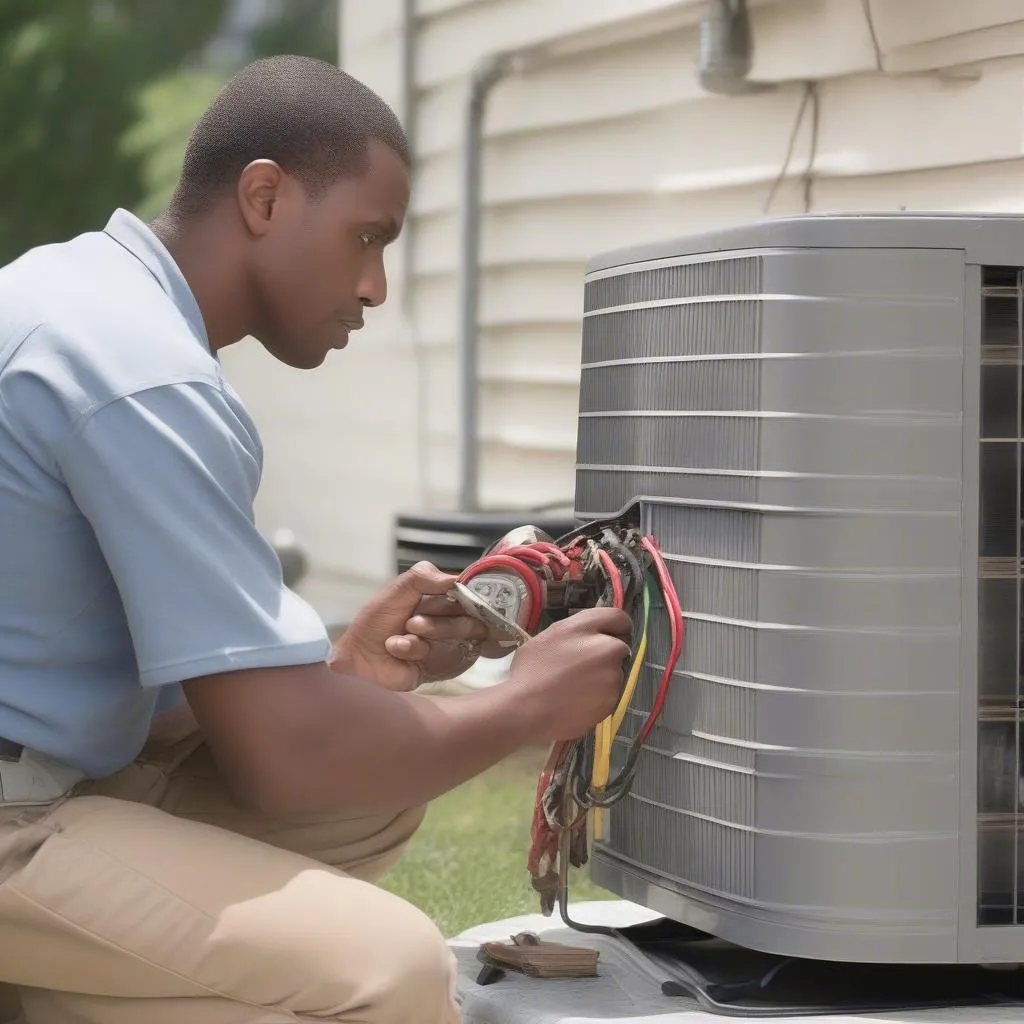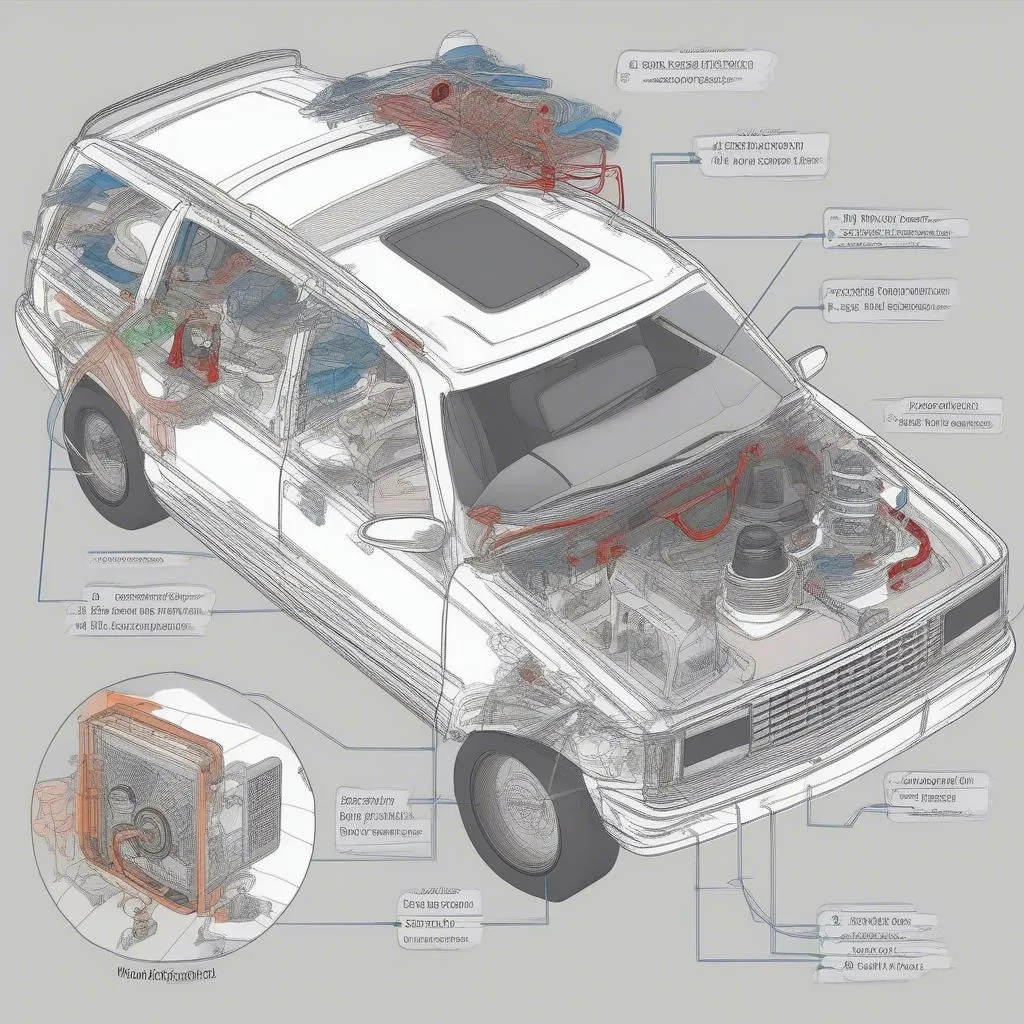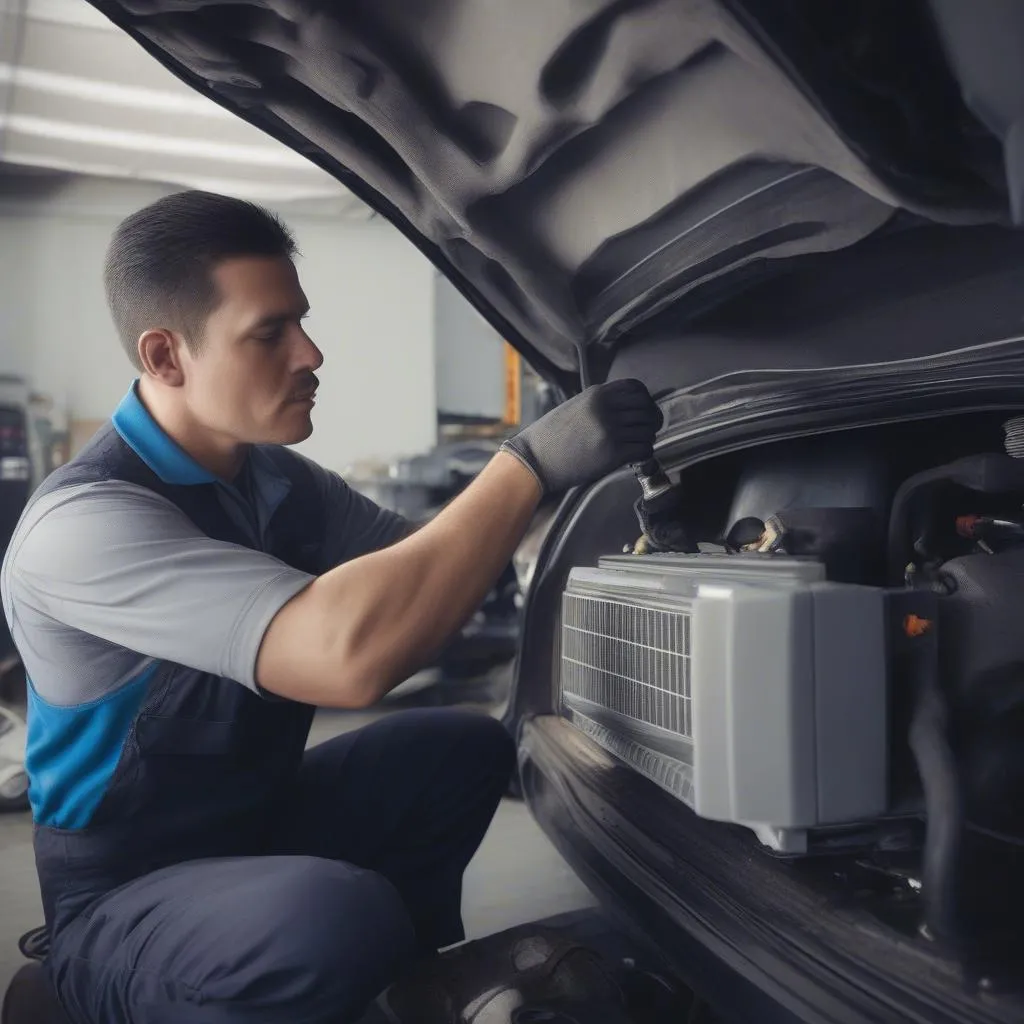It’s the middle of summer, and you’re stuck in traffic. The sun is beating down, and the heat is unbearable. You turn on your car’s air conditioner, but nothing happens. You’re sweating, frustrated, and wondering what could be wrong. The question on your mind is, “What Causes A Car Air Conditioner To Stop Working?”
Understanding Why Your Car AC Stops Working
The air conditioner in your car is a complex system with many parts that can fail. It’s not uncommon for your AC system to malfunction or even stop working entirely. It’s a common problem that affects drivers all over the world.
Common Causes of Car AC Malfunctions
1. Refrigerant Leak
One of the most common reasons why your car AC might not be blowing cold air is a refrigerant leak. Refrigerant is the substance that absorbs heat from the air inside your car and expels it outside. Think of it as the blood that runs through your car’s AC system, making it run. If there’s a leak in the system, the refrigerant will escape, and your AC won’t work.
How to Check for Refrigerant Leaks
Look for signs of oil or refrigerant residue around the AC lines and components.
Example
Imagine your AC unit has been working perfectly all summer. Suddenly, you notice that your AC isn’t blowing cold air. The issue might be due to a leak. Your car might have been parked under a tree, and the AC lines were punctured by falling branches.
2. Faulty Compressor
The compressor is the heart of your AC system. It’s responsible for compressing the refrigerant, which is what makes the AC system work. If the compressor fails, your AC won’t work.
Signs of a Bad Compressor
Listen closely to the sound of your engine. Does it make a loud grinding noise? If you hear a grinding noise coming from the engine, it’s a good sign the compressor may be failing.
Example
Let’s say you’re driving down a highway in Texas, on a sweltering summer day. You notice a loud rattling noise coming from your car. You pull over to the side of the road, and the AC stops blowing cold air. Your car’s compressor could be failing due to the intense heat, and it may need to be replaced.
3. Blown Fuse
Fuses protect electrical circuits. If a fuse in your car’s AC system blows, it will stop the AC from working.
How to Check for Blown Fuses
Locate the fuse box in your car’s engine compartment or under the dashboard. Look for a fuse labeled “AC,” “A/C,” or “Air Conditioning.” You can check for a blown fuse by looking for a burnt or broken wire inside the fuse.
Example
Let’s say you live in Arizona and it’s extremely hot, and you’re driving home from work. The engine suddenly shuts off while you’re driving. When you turn the key, the engine doesn’t start, and the AC isn’t working. There’s a good chance that the fuse for the AC has blown, and you might need to replace it.
4. Clogged Condenser
The condenser is responsible for dissipating heat from the refrigerant. If the condenser becomes clogged with debris, it can affect the AC system’s efficiency and cause it to stop working properly.
How to Check for a Clogged Condenser
You can check for a clogged condenser by looking for debris on the condenser’s fins.
Example
Think of your AC system as a human body. If you’re not eating properly, the blood flow won’t be optimal. The same can be said about your car’s AC system. If debris is blocking the condenser, it’s going to prevent the system from working efficiently.
5. Problems with the Blower Motor
The blower motor is responsible for circulating cool air into your car’s cabin. If the blower motor fails, your AC won’t blow any air, even if the rest of the system is working properly.
How to Check for a Faulty Blower Motor
Listen for any unusual sounds coming from the dashboard. If the blower motor isn’t working, you won’t hear any noise when you turn the fan on.
Example
Imagine you’re driving to the beach in California on a hot summer day. You turn on your AC, and you hear a rattling noise coming from your dashboard. You turn the AC off, and you hear the noise stop. This could be a sign that your blower motor is going out. You may want to get it checked out before it fails completely.
Other Factors That Can Cause AC Problems
- Low Refrigerant Levels: Even if there isn’t a leak, your AC system might still have low refrigerant levels.
- Electrical Problems: A problem with your car’s electrical system, such as a short circuit, can also cause your AC to stop working.
- Faulty Thermostat: The thermostat is responsible for regulating the temperature of your car’s interior. If the thermostat is broken, the AC might not be able to maintain the desired temperature.
What to Do If Your AC Stops Working
If your car’s AC stops working, it’s best to get it checked out by a qualified mechanic.
Some questions you might ask your mechanic include:
- What’s the problem with my AC system?
- How much will it cost to repair?
- How long will it take to fix?
- What’s the best way to prevent this from happening again?
It’s important to address any AC issues as soon as possible, to prevent damage to the system.
How to Keep Your Car’s AC Running Smoothly
- Regularly Check Your AC System: Have your AC system inspected by a mechanic every year.
- Keep Your Condenser Clean: Clean your condenser at least once a year by removing any dirt, debris, or leaves that have accumulated.
- Change Your Cabin Air Filter: Change your cabin air filter every 6 months to ensure optimal airflow.
Need Help?
If you’re experiencing any problems with your car’s AC system, we can help! Contact us at Whatsapp: +84767531508 for professional advice and support. Our expert technicians are available 24/7 to answer your questions and help you get your AC back to working order.
 ac-refrigerant-leak
ac-refrigerant-leak
 car-ac-parts
car-ac-parts
 car-ac-service
car-ac-service
We hope this information helps you understand what causes a car air conditioner to stop working. If you have any more questions, please leave a comment below.